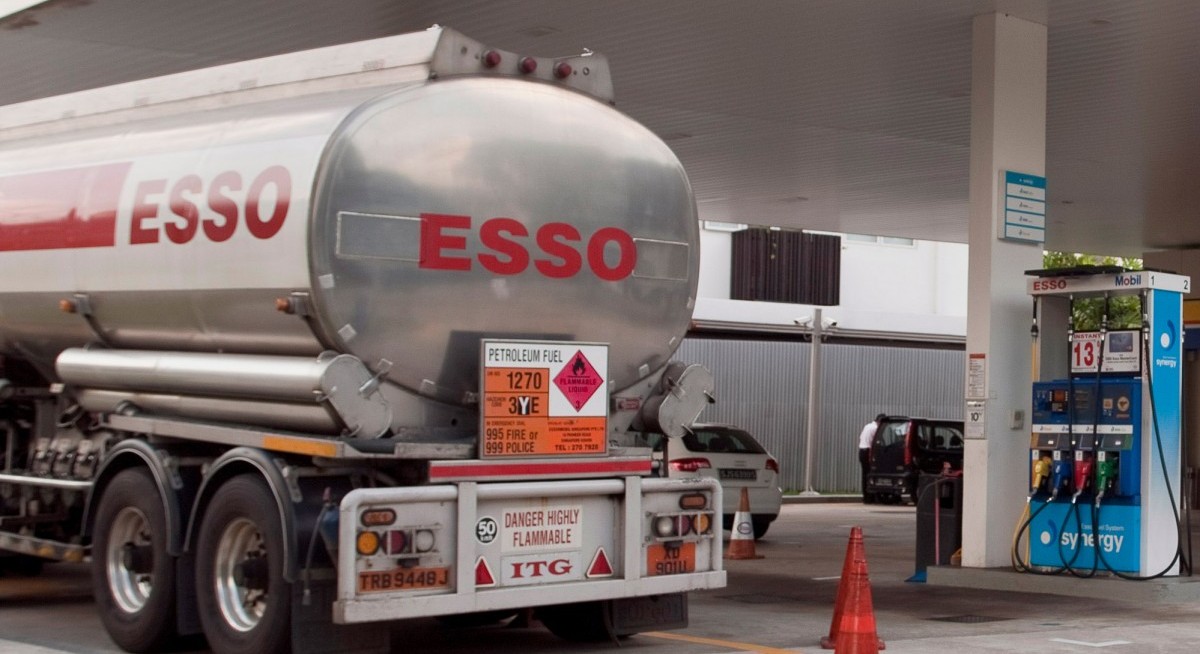“[As] with any mature industry, we would expect to see some churn, and naturally then reinvestment and rejuvenation,” says Lai in a written statement following a media tour of Jurong Island ahead of Singapore International Energy Week (SIEW) 2025.
Oil giant Shell, for example, announced in May 2024 that it will sell its Singapore assets on Pulau Bukom and Jurong Island after a strategic review. Shell completed the sale in April this year to a joint venture between Indonesia’s Chandra Asri and Switzerland’s Glencore.
The deal makes Indonesia-based Chandra Asri, the majority owner of the joint venture, one of Southeast Asia's largest petrochemicals players, according to Reuters.
Last week, Chandra Asri announced that it will acquire nearly 60 fuel stations of ExxonMobil's network of Esso-branded retail fuel stations in Singapore, along with associated supply agreements.
See also: Trump set to direct Pentagon to buy coal power to revive industry
ExxonMobil had announced on Oct 1 that it plans to reduce 10%-15% of its 3,500-strong workforce in Singapore by the end of 2027.
“We can expect that companies will right-size their operations,” says Lai, “but what is noteworthy is that many of them still continue to maintain a significant presence in Singapore.”
For example, Singapore is still home to ExxonMobil's largest manufacturing site and the company has just started up new production facilities, while Shell has reinforced the importance of Singapore as a regional hub for their marketing and trading business, according to Lai. “This reflects their continued trust in Singapore’s competitiveness as a leading energy and chemicals hub.”
See also: Chipmaking hub Taiwan reaffirms support for new nuclear tech
Jurong Island, the cornerstone of Singapore’s E&C industry, marks its 25th anniversary this year. E&C is the second-largest sector in Singapore’s manufacturing industry, accounting for around 3% of Singapore’s GDP and about one quarter of manufacturing output in 2024.
Jurong Island is home to over 100 global energy and chemicals companies such as ExxonMobil, BASF, Chevron Oronite, Mitsui Chemicals and Sumitomo.
In 2021, the Sustainable Jurong Island plan was launched to transform the island into a sustainable E&C hub and strengthen the sector’s long-term competitiveness.
The plan has driven an increase in the E&C sector’s output of sustainable products by 1.4 times since 2019, putting Singapore on track to achieve a 1.5 times increase by 2030.
During the 2019 baseline year, sustainable products like bio-based fuels and chemicals accounted for 7% of the sector’s manufacturing output. Examples of sustainable products include sustainable aviation fuels (SAF) made from biogenic feedstock and pyrolysis oil from plastics recycling.
In addition to the 2030 target, the Sustainable Jurong Island plan also includes a 2050 goal to increase the output of sustainable products by four times compared to 2019.
To stay ahead of Singapore and the region’s corporate and economic trends, click here for Latest Section
Lai says EDB is working closely with existing companies to “upgrade and transform their operations”. “Beyond this, we are also capturing new growth opportunities in sustainable solutions, R&D and higher-value specialty chemicals, both in partnership with the existing base of companies, as well as new greenfield investors — a number of which opened plants this year.”
In May, South Korean firm Cariflex opened the world’s largest polyisoprene latex plant at Jurong Island, following an investment of over US$350 million ($454.56 million).
The facility spans 6.1 ha and increases Cariflex’s production capacity to meet growing demand for high-quality synthetic latex used in medical and protective applications such as surgical gloves and condoms.
According to EDB and JTC, the project has created about 80 new jobs — “the majority for Singaporeans”. Cariflex relocated its global headquarters to Singapore in 2020.
In August, German chemical company Evonik inaugurated a new alkoxides production facility on Jurong Island. Built with a “mid-double-digit million-euro investment”, the plant adds 100,000 metric tonnes of annual capacity to meet rising demand in Asia, according to EDB and JTC.
The Singapore site will supply key industries such as biodiesel, pharmaceuticals and chemical recycling while strengthening Evonik’s global alkoxides network, which includes plants in Germany, the US and Argentina.
According to Evonik, alkoxides are mainly used to produce sustainable biodiesel fuel from vegetable oils, used cooking oils and other fat-based waste. Alkoxides are also used in the life science industry.
Photo: JTC




